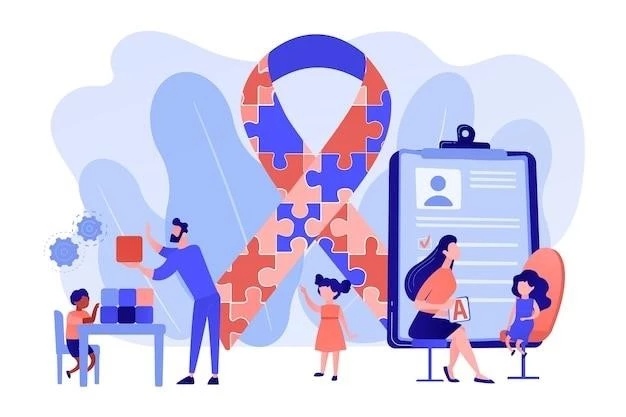Introduction
The European Guidelines on Diagnosis and Management of Neutropenia in Adults and Children provide evidence-based recommendations on this hematological disorder.
Definition of Neutropenia Monocytopenia Deafness
Neutropenia is a reduction in the blood neutrophil count‚ increasing the risk and severity of bacterial and fungal infections. Monocytopenia can also occur‚ potentially causing severe immune deficits. In some cases‚ this condition can lead to hearing loss. Seek medical advice for proper evaluation and management.
Clinical Manifestations
Neutropenia can increase the risk and severity of bacterial and fungal infections due to the reduction in neutrophil count. Monocytopenia may lead to severe immune deficits‚ sometimes accompanied by hearing loss. Seek medical evaluation and care for proper management.
Neutropenia refers to lower-than-normal levels of neutrophils in the blood‚ which are crucial in fighting infections. Concurrent monocytopenia can result in severe immune deficits‚ increasing the risk of various infections. Regular monitoring and medical attention are essential to manage the impact on blood cell counts effectively.
Neutropenia‚ alongside monocytopenia‚ can lead to severe immune deficits‚ making individuals more susceptible to various infections. It is essential to seek medical attention promptly to address the impacts on the immune system effectively and maintain overall health.
Causes and Risk Factors
The causes of Neutropenia monocytopenia deafness may involve genetic factors and environmental triggers. Seek medical advice for proper evaluation and management of this condition.
Genetic Factors
Neutropenia monocytopenia deafness may involve genetic factors. Seek medical advice for proper evaluation and management of this genetic component of the condition.
Environmental Triggers
Factors such as infections‚ the stress response‚ endotoxemia‚ hemodialysis‚ or cyclic neutropenia can act as environmental triggers for the development of neutropenia and monocytopenia. It is crucial to be cautious of these triggers and seek appropriate medical guidance to manage their impact effectively.
Diagnosis
Diagnosing Neutropenia monocytopenia deafness involves medical history‚ physical examination‚ and laboratory tests. Seek evaluation for accurate diagnosis.
Effects on Blood Cell Counts
Neutropenia leads to a decrease in blood neutrophil count‚ increasing susceptibility to infections. Monocytopenia also contributes to severe immune deficits‚ creating a higher risk of various infections. Regular monitoring and medical support are crucial to manage the impact on blood cell counts effectively.
Laboratory Tests
Diagnosing Neutropenia monocytopenia deafness often involves laboratory tests such as complete blood count with differential count. These tests play a crucial role in evaluating the levels of blood cells and identifying any abnormalities that may indicate the presence of the condition. Consulting healthcare professionals for the appropriate tests and interpretations is essential for accurate diagnosis and effective management.
Treatment Options
Effective treatments for Neutropenia Monocytopenia Deafness may include medications and bone marrow transplant. Consult healthcare professionals for appropriate management.
Impact on Immune System
Neutropenia and monocytopenia can significantly affect the immune system‚ increasing susceptibility to various infections. Seek medical advice for proper management of the immune system’s impact‚ ensuring overall health and well-being.
Medications
Medications play a crucial role in the treatment of Neutropenia Monocytopenia Deafness‚ aiming to manage symptoms and improve immune function. Consult healthcare providers to determine the appropriate medications and personalized treatment plan for effective management of this complex condition.

Prognosis
Understanding the long-term outlook with Neutropenia Monocytopenia Deafness is essential for treatment planning. Seek guidance from healthcare providers for personalized prognosis and management options.
Long-Term Outlook
Understanding the long-term outlook for Neutropenia Monocytopenia Deafness is crucial. Consult healthcare providers for personalized prognosis and effective management strategies tailored to your specific condition.
Supportive Care
Consult community resources and patient support groups for guidance on coping with Neutropenia Monocytopenia Deafness and accessing additional support.
Community Resources
Accessing community resources can provide valuable support for individuals affected by Neutropenia Monocytopenia Deafness. Community groups and patient support organizations offer information‚ guidance‚ and a supportive network to help navigate the challenges associated with this condition. Connecting with these resources can offer additional insights and assistance in managing Neutropenia Monocytopenia Deafness effectively.
Patient Support Groups
Engaging with patient support groups dedicated to Neutropenia Monocytopenia Deafness can provide valuable emotional support‚ information‚ and a sense of community. Joining these groups can offer insights‚ resources‚ and connections with individuals facing similar challenges‚ enhancing your overall experience and well-being while dealing with this condition.
Research and Specialists
For information on specialists in Neutropenia Monocytopenia Deafness and ongoing research studies‚ consult reputable sources and healthcare professionals for specialized care and insights into this condition.
Specialists in Neutropenia Monocytopenia Deafness
Specialists knowledgeable about Neutropenia Monocytopenia Deafness have expertise in diagnosing and managing this complex condition. Seeking guidance from these specialists can ensure comprehensive care and optimal treatment outcomes tailored to individual needs.
Ongoing Research Studies
Stay informed about the latest advancements in the field of Neutropenia Monocytopenia Deafness by exploring ongoing research studies. These studies aim to enhance our understanding of the condition‚ potential treatments‚ and overall management strategies. Engaging with research may offer insights into future developments and therapeutic options for individuals impacted by this complex syndrome.
Complications
Complications may include increased risk of infections and hearing loss. Stay informed and consult healthcare professionals for management.
Infections
Individuals with Neutropenia monocytopenia deafness are at an increased risk of infections due to compromised immune functions. It is crucial to be vigilant for signs of infections and seek prompt medical attention to prevent and manage potential complications effectively.
Hearing Loss
Individuals with Neutropenia Monocytopenia Deafness may experience hearing loss as a symptom. It is important to monitor any changes in hearing and consult medical professionals for appropriate evaluation and management of hearing-related issues to maintain quality of life.
Findings in a family with neutropenia‚ monocytopenia‚ and deafness highlight the importance of careful evaluation and management of this complex condition.

Case Studies
Exploring family case studies can provide valuable insights into the complexities of Neutropenia Monocytopenia Deafness. These real-life scenarios help understand the challenges faced and the importance of tailored management strategies.
Patient Management
Consult with healthcare professionals for personalized treatment guidelines and strategies for managing Neutropenia Monocytopenia Deafness effectively.
Treatment Guidelines
Following treatment guidelines is essential for managing Neutropenia Monocytopenia Deafness effectively. Healthcare professionals can provide personalized recommendations to address specific needs and ensure optimal care for individuals with this condition.
Associated Syndromes
Among the associated syndromes is the ‘Neutropenia-Monocytopenia-Deafness’ syndrome characterized by neutropenia‚ monocytopenia‚ and congenital deafness. Understanding these syndromes is crucial for comprehensive care.
Related Genetic Disorders
Genetic disorders related to Neutropenia Monocytopenia Deafness may include mutations affecting myeloid and immune cells‚ leading to complex clinical manifestations. Understanding these genetic disorders is essential for comprehensive management and treatment approaches tailored to individual genetic profiles.
Conclusion
Neutropenia monocytopenia deafness presents complex challenges requiring tailored treatment approaches and comprehensive care. Consulting healthcare professionals for personalized management is crucial for optimizing outcomes.
